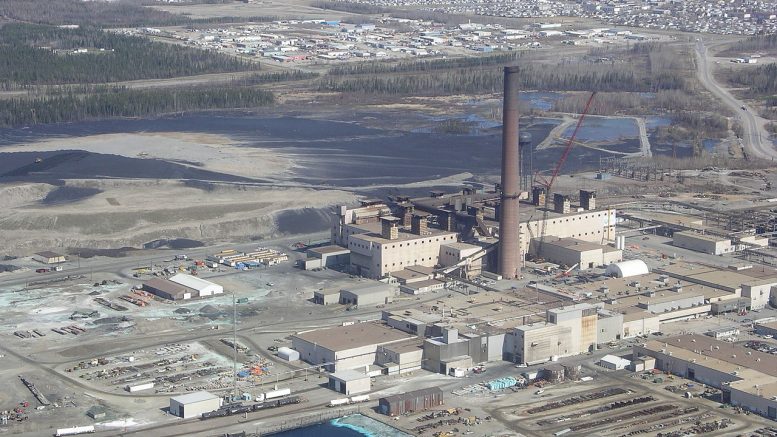The following is an edited transcript of Steven Fletcher — Independent Member of the Legislative Assembly of Manitoba for Assiniboia and a Conservative Member of the Canadian Parliament from 2004–15 — speaking in the Manitoba Assembly on Nov. 9 on the subject of a proposal to establish a national park overtop an extension of the Thompson nickel belt.
This is an issue of urgency and of public importance. The federal Liberal government announced, in their 2017 budget, plans for a national park.
Though we are all supportive of parks, it’s very important where the parks are located.
The federal government announced it, apparently without consulting anyone — First Nations communities, not sure if they consulted the provincial government or not. If they did, the provincial government should have said no. And if they didn’t, the provincial government should have said no immediately after the announcement.

Steven Fletcher
That has not occurred and, in my new space [having been elected MLA in 2016], this is the only opportunity and the only manner that I have to raise this issue.
Madam Speaker, this Lowlands National Park is right on top of the extension of the Thompson Nickel Belt. The Thompson Nickel Belt is where the jobs and economy and royalties and tax revenue are generated in the third-largest industry in Manitoba, by and large. And that is the nickel mines in Thompson.
The resources around Thompson — the currently discovered orebodies — are coming to an end of their life and being mined out.
There needs to be new exploration and new development to be found. The Thompson Nickel Belt is a well-known and defined area. It so happens that where the lowlands is, the nickel belt is just under the Paleozoic limestone. With little effort, this world-class deposit can be exploited. We have the infrastructure, we have the power, the roads, the communities, and the workforce.
But, Madam Speaker, mining capital is ruthless. It goes to the easiest location. Although the extension is the easiest from all sorts of perspectives, what kills it is the announcement of a national park.
What mining company is going to do any kind of investment with a threat of a national park on the area which they are exploring? A national park would exclude the opportunity for mining — even the suggestion of a national park excludes the possibility.
Thousands of jobs are being lost, and many thousands more are going to be lost.
That is why it’s imperative that this government today, right now, definitively provide assurance to Vale and Hudbay, and other mining operations that there will not be a national park where the ore is.
Having said that, let’s assume for a moment that the announcement was made with good intentions. There are other areas in Manitoba that are, perhaps, more valuable.
I have long advocated for the preservation of the entire Seal River watershed. This is one of the few watersheds that has been untouched by human development. It’s almost entirely in Manitoba, with the exception of a sliver that’s in Nunavut. It’s 50,000 sq. km — larger than some European nations — but an untouched watershed.
Perhaps it would be better to focus on protecting that watershed where, at present, there are no mining claims, nor will there be in the foreseeable future. The affected communities are Tadoule Lake and Lac Brochet. Lac Brochet is outside the watershed and the First Nations.
Madam Speaker, why not, instead of arguing with Ottawa on everything, make them a deal: Let’s preserve the Seal River Watershed, just not for Manitobans, but for the world, and let’s give that as our contribution to the environment. It would also be a huge carbon sink, i.e., carbon being absorbed. And in 200 years what will be more valuable: ore, or clean water, in an untouched watershed that’s larger than most countries in Europe?
This watershed is priceless. I would like it to become a canoe park — in fact, canoeing where there are no motorists.
Even kayakers could go, and if you want to go into this canoe park, you can land in Lac Brochet outside the watershed and paddle in, earn your way into paradise.
(Download a PDF map of planned boundaries of the Lowlands National Park: LowlandsMap-ASI-sept04.)


The Seal River watershed contains a large Proterozoic volcanic-sedimentary belt similar to the Flin Flon belt with many known Cu-Zn and Au showings and also potential for nickel mineralisation. Not the ideal place for a park. This being said a large part of the watershed has limited known mineral potential. Room for a park, just not all of it.
It needs to be clarified the Thompson ore bodies are not mined out. There is substantial resource still remaining in the ground. Yes. much of it is sub-economic only by virtue of current market conditions for nickel. As with all commodities, we know that can change dependent on supply and demand for nickel.
As for the Thompson ore that remains and is still economic, the threat to Thompson was a political decision via the Voisey’s Bay discovery – significant resource still remains in Thompson.
If the mine life must be cut short, perhaps the new (non-Canadian) owners could do the region a favor and sell the property to someone with more vested Canadian interests?